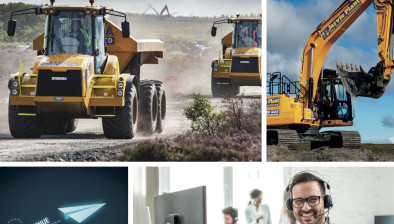Seven years required before removal of red diesel subsidy, say plant owners
The Scottish Plant Owners Association (SPOA) has called for a seven-year timeframe before the UK Government removes the subsidy on red diesel to allow the life cycle of machinery to end and for equipment manufacturers to have the necessary green products in place.

In a collective response to the government consultation from its 260 members, the organisation said ending the subsidy will have no short-term environmental benefits and simply push up costs for anyone who hires construction machinery.
The SPOA said: “The construction hire industry in Scotland has a hire revenue turnover of £1bn and our membership represents 97% of the construction equipment hire companies in Scotland.
“Our members are fully behind the policy aims of this subsidy removal to create lower carbon emissions, however a clearly thought out timeline of 7 years is required to allow the life cycle of our member machinery to end and our Equipment Manufacturers (OEMs) to have the necessary green products in place.
“The hire industry by its very nature is part of the circular economy whereby we allow lots of people to use our machines thus stopping the necessity for everyone to own one resulting in the hire industry having a positive impact on the environment. At the end of machine life we then sell to other countries and the process starts again. This simple fact should result in the hire industry being an exempt industry and allowed to continue with the red diesel subsidy with a seven-year timeline before the subsidy is removed.”
In response to the question regarding the environmental outcomes of removing the entitlement, the SPOA said: “Our members invest heavily in equipment and Tier 5 engines are already dramatically more efficient than those used in the car industry. A perverse environmental outcome is that our members are likely to continue to use older, more inefficient machinery for longer than otherwise expected (1) to mitigate the costs of the removal of the rebate and (2) because new investment for a shorter life cycle than seven years (assuming green alternatives become available) is not viable.
“In the short term the removal of red diesel subsidy will neither create nor reduce the environmental impact in our industry. Typically hire companies run their equipment for between five and seven years, the very nature of our industry is we hire out used equipment, thus a two-year period before the subsidy removal will not allow sufficient time to bring in alternative fuel machines. Furthermore, OEM’s will not be in a place to offer a wide enough range of machinery within this time period.”























